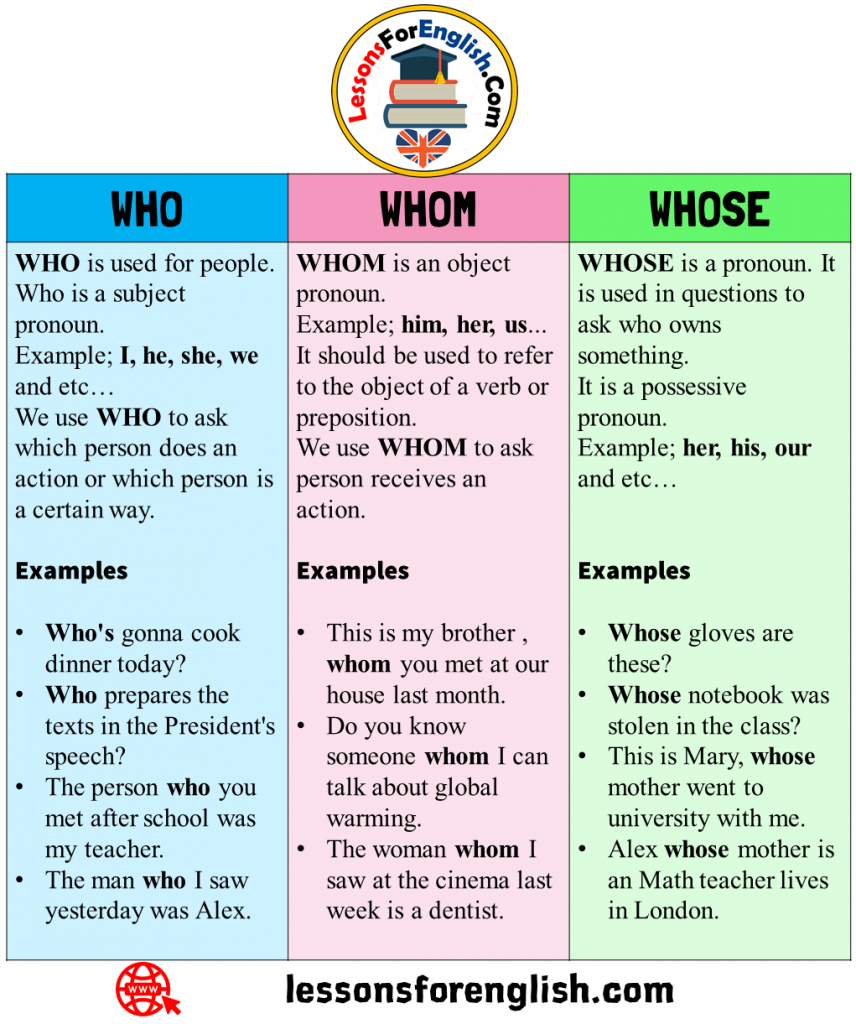

"Whom should I speak to regarding this inquiry?" "Whom does this book belong to?" "To whom do I submit my report?" On each of these sentences, "whom" serves not as the subject of the sentence but as the object of a verb or a preposition here. I'll come back to this point in just a moment.įor now, though, let's contrast this point with "whom," when we use "whom." We use "whom" to refer to the object of a verb or a preposition. So, "Who is he?" We could say, "He is my friend." "Who stole my drink?" We could say, "She stole your drink." "Who is using my computer?" "He is using your computer." So, here again, we have "he," "she" and "he" as the answers for these questions. And, we can answer these questions with a simple reply. In this set of examples, "who" is used to refer to the subject of the sentence. I have, "Who is he?" "Who stole my drink?" and "Who is using my computer?" So, I have a few questions here. Let's look at a couple of examples here in red. Let's begin with the word, "who." We use the word, "who" when we refer to the subject of a sentence. Let's find out how to use them and a few hints for how you can decide which is the correct word to use in a sentence. In this lesson, I'm going to talk about the difference between "who" and "whom," two commonly confused words.


 0 kommentar(er)
0 kommentar(er)
